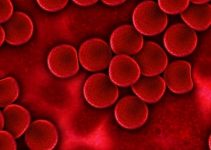Some mothers develop depression after giving birth, potentially leading to substance abuse. This article will tackle the role of substance use and recovery in postpartum depression (PDD) and ways to address it.
This condition can occur within the first year after childbirth, developing in weeks or months. It’s caused by hormonal, genetic, psychological, and environmental factors.

What Is Postpartum Depression?
Postpartum depression is a mood disorder affecting individuals after childbirth. It involves intense sadness, anxiety, and fatigue, impacting a new parent’s self-care and baby care. Unlike normal post-birth emotional changes, PPD is more severe and persistent.
Key features of PPD include:
- Overwhelming sadness, hopelessness, and emptiness, with frequent crying spells
- Decreased pleasure in once-enjoyed activities, including bonding with the baby or socializing
- Extreme tiredness and disrupted sleep patterns leading to irritability
- Altered eating habits, resulting in weight gain or loss
- Restlessness, heightened anxiety, and excessive worries
- Struggling to emotionally connect with the newborn
- Headaches, stomachaches, and muscle aches
PPD is treatable. Timely interventions, such as psychotherapy and support groups, alleviate symptoms. Creating a dialogue about mental health and providing accessible resources is crucial for maternal well-being. If you’re looking for PDD treatment options, you can check reliable sources for more information.
Causes Of Postpartum Depression
Postpartum depression (PPD) is a multifaceted condition influenced by physical, emotional, and social factors. Hormonal changes after childbirth, particularly the drop in estrogen and progesterone levels, can impact mood-regulating neurotransmitters. Genetic predisposition, especially in cases of a family history of mental health disorders, may play a role.
Psychological factors like stress, low self-esteem, and feelings of inadequacy associated with new motherhood can contribute. Previous mental health issues also heighten the risk. History of trauma, limited social support, and sleep disruption due to newborn care can amplify susceptibility. Likewise, physical health complications during pregnancy or postpartum recovery, strained relationships, financial stress, and lack of sleep due to nighttime feedings can further exacerbate PPD.
Understanding that PPD is a legitimate medical condition, not indicative of personal weakness, is crucial. Seeking professional assistance and support is vital for effective management and recovery if experiencing symptoms of PPD.
Diagnosing Postpartum Depression
PPD is typically diagnosed through clinical assessment, self-reporting, and symptom evaluation by healthcare professionals. This process includes applying criteria from the DSM-5 to establish a PPD diagnosis.
Seeking timely diagnosis and appropriate treatment is essential for the effective management of postpartum depression, emphasizing the importance of reaching out to a healthcare professional if PPD symptoms are observed in oneself or someone else.
Impact Of Postpartum Depression On Mother And Child
Untreated postpartum depression profoundly affects maternal well-being. Emotional distress can hinder bonding, disrupt functioning, and strain relationships. PPD erodes self-esteem, leads to isolation, and amplifies the challenges of motherhood.
PPD also impacts child development. Infants of mothers with PPD may experience developmental delays and behavioral problems. The mother’s emotional state influences caregiving, affecting nurturing and attachment formation.
Maternal and child well-being are interconnected. A mother’s role shapes a child’s early experiences, influencing emotional and psychological development. Addressing PPD breaks potential cycles of distress, ensuring optimal growth and well-being.
Substance Use and Its Impact on Postpartum Depression
Substance use, including alcohol, drugs, and addictive substances, significantly influences postpartum mental health and can contribute to or worsen postpartum depression (PPD). This intricate relationship highlights the necessity for comprehensive care and intervention strategies for new mothers.
The postpartum phase is a vulnerable period characterized by hormonal shifts, sleep deprivation, and adapting to a new role. Substance use can further complicate this balance and heighten the risk of mental health issues, such as PPD. Substance use impacts PPD in key ways, including biological effects that disrupt neurotransmitter equilibrium in the brain, potentially worsening mood disorders like PPD. Alcohol and certain drugs also interfere with hormonal regulation, impacting emotional well-being.
Additionally, substance use contributes to social isolation, reducing critical support during this period. Isolation amplifies feelings of loneliness and sadness, elevating the risk of PPD. For those with a substance use history, ongoing or resurfacing use can hinder PPD treatment effectiveness, affecting therapy and medication outcomes.
Recognizing substance use’s potential PPD impact is vital for healthcare providers, families, and support systems. Prevention and intervention measures can significantly reduce risk. Routine screening and educating pregnant and postpartum women about substance use risks are essential.
Establishing a non-judgmental setting for discussing substance use and mental health encourages seeking treatment without stigma.
Coordinated efforts among mental health, addiction specialists, and obstetricians to comprehensively address substance use and PPD. Therapeutic interventions such as cognitive-behavioral therapy, support groups, and counseling foster healthier coping mechanisms for substance use and PPD. Partners and families offer emotional support, childcare assistance, and aid in seeking treatment.

How To Recover from Substance Use During Post Partum
Your recovery and caring for a newborn require careful planning and a holistic approach. The hormonal changes and stress that come with newborn care can potentially trigger a return to substance use, underlining the need for a comprehensive strategy. Despite the difficulties, successful recovery can profoundly benefit your well-being and ability to parent effectively.
Maintaining sobriety and managing triggers in the postpartum period requires tailored strategies. Implementing these approaches can help you navigate recovery while caring for your newborn.
1. Build A Support System
Establishing a robust support system is a cornerstone of navigating postpartum depression and substance use challenges. You should cultivate a network of understanding friends, family members, and professionals who are aware of your situation and provide unwavering support.
By connecting with individuals who have faced similar experiences, you gain valuable insights and encouragement that can foster resilience and motivation. For instance, a close friend who has overcome similar struggles can offer empathetic advice, while professionals can provide evidence-based guidance tailored to your specific needs.
Additionally, you gain access to many coping strategies, guidance, and perspectives to aid your recovery process by attending support groups. Share your story to promote a sense of belonging and alleviate isolation.
2. Prioritize Self-Care
Engage in activities promoting relaxation, such as meditation or leisurely walks, to reduce stress levels and enhance overall well-being. Pursue painting, reading, or gardening to provide an outlet for self-expression and enjoyment.
3. Identify Triggers
Recognizing triggers that may lead to cravings or exacerbate symptoms is pivotal to managing postpartum depression and substance use. By pinpointing situations, places, or people that provoke negative emotions or impulses, you can proactively develop strategies to avoid or cope with them. For example, if social gatherings trigger feelings of anxiety, you can either limit attendance or employ relaxation techniques to navigate such situations.
4. Create A Routine
Establishing a structured daily routine provides a sense of stability and predictability that can be particularly beneficial during times of recovery. This routine can encompass dedicated time for self-care activities, bonding with your baby, and engaging in productive tasks. By adhering to a schedule, you create a foundation that helps manage stress and reduce the likelihood of triggers disrupting your progress.
5. Involve Your Partner
Involving your partner, if applicable, can create a united front in your recovery journey. Openly discussing your triggers, challenges, and coping strategies fosters a supportive environment where both individuals actively contribute to each other’s well-being. Your partner can provide emotional encouragement, participate in healthy activities together, and share responsibilities, ultimately strengthening your collective resilience.
6. Avoid Isolation
It’s important to maintain connections and stay engaged in social activities to prevent isolation, which can exacerbate postpartum depression and substance use struggles. Actively seek opportunities to interact with friends, family, and peers who understand your situation and offer companionship. Engage in social activities, whether a coffee outing or a virtual meetup, to promote a sense of belonging and alleviate feelings of loneliness.
7. Mindful Parenting
Practice mindful parenting by being fully present and engaged when interacting with your baby. By focusing on the present moment during caregiving activities, such as feeding or playtime, you deepen the bond with your child and create positive, meaningful experiences. Mindful parenting is a constructive way to redirect your attention away from triggers, allowing you to immerse yourself in nurturing and rewarding interactions.
8. Seek Professional Help
If you struggle with triggers, cravings, or overwhelming emotions, you should not hesitate to contact your healthcare providers or therapists. Seeking their guidance and expertise ensures timely interventions and adjustments to your treatment plan, helping you navigate challenges effectively and sustain your progress toward recovery.
You should maintain open and honest communication with your healthcare team, which plays a vital role in your recovery journey. Regular check-ins with your obstetrician, therapist, or addiction specialist ensure that you receive the appropriate guidance and monitoring.
Sharing your progress, challenges, and concerns empowers healthcare professionals to tailor their support and interventions to your evolving needs, maximizing the effectiveness of your treatment plan.
Implementing these strategies can help manage triggers and maintain sobriety in the postpartum period. With proper support, you can provide a nurturing environment for yourself and your baby.
Integrated Approaches to Addressing PPD and Substance Use
The complexities of PPD and substance use demand a holistic approach. Comprehensive assessment considers the physical, emotional, and social aspects of a mother’s life to understand the root causes and triggers. This assessment informs a tailored treatment plan addressing the interconnected challenges.
Collaboration is essential in addressing PPD and substance use. Obstetricians, mental health professionals, and addiction specialists form a cohesive team. Obstetricians recognize signs of PPD and substance use.
Mental health professionals assess and manage mental health disorders, while addiction specialists offer insights into treatment. This synergy ensures a unified approach that meets diverse needs.
Integrated therapeutic interventions are effective tools for tackling PPD and substance use. Cognitive-behavioral therapy (CBT) develops healthier coping mechanisms and addresses negative thought patterns. Motivational interviewing helps mothers find motivation for recovery and change. These interventions empower mothers to manage both challenges, fostering a sense of control.
Support groups and peer networks provide a nurturing space for mothers to connect, share, and learn. These platforms reduce the isolation that worsens PPD and substance use. By fostering a community of understanding, support groups empower mothers to draw strength from collective resilience, inspiring hope.
Policy and Healthcare Considerations
Effectively managing postpartum depression (PPD) and substance use requires comprehensive policy and healthcare delivery approaches. Addressing these critical areas can create a supportive environment for mothers facing a dual diagnosis. This article delves into key considerations to improve outcomes for mothers with PPD and substance use.
Advocating for enhanced maternal mental health services is crucial in addressing complex PPD and substance use issues. Governments, non-governmental organizations, and healthcare institutions must collaborate to prioritize specialized programs offering stigma-free support, including counseling, therapy, and community services.
Raising awareness and driving policy changes can ensure mothers receive needed assistance during this vulnerable period.
Incorporating substance use screening into routine postpartum care is pivotal for early detection and intervention. Healthcare providers, including obstetricians, nurses, and midwives, are crucial in identifying signs of substance use and PPD. By integrating standardized screening tools into postpartum assessments, we can promptly identify mothers at risk, enabling timely referrals to specialized care.
Equipping healthcare professionals with the necessary skills to address dual diagnosis is imperative. Comprehensive training should encompass understanding the interplay between PPD and substance use, recognizing symptoms, conducting sensitive conversations, and providing appropriate referrals.
Enhancing healthcare teams’ expertise empowers them to deliver holistic care addressing mental health and substance use.
Additionally, accessible and affordable treatment options are fundamental for comprehensive care for mothers facing a dual diagnosis. Adequate insurance coverage for substance use treatment ensures no financial barriers hinder care access.
Policymakers and insurance providers must collaborate to expand coverage and reduce the financial burden on mothers seeking treatment. Efforts should also increase specialized treatment centers and support groups, providing diverse options tailored to individual needs.
Conclusion
Overcoming substance use problems can boost your self-esteem, equip you with better coping skills, and provide a strong foundation for handling the challenges of motherhood. To achieve successful recovery during the postpartum period, seeking support from experienced professionals, staying in open communication with your healthcare providers, focusing on self-care, and using available parenting resources are crucial.
As you navigate the balance between healing from substance use disorders and caring for your newborn, you face a specific set of challenges that require careful consideration.



